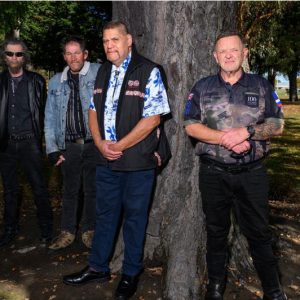An apology is needed for people who have been abused in state and church care, according to a group that supports survivors of sexual abuse.
Leo McIntyre, spokesman for The Road Forward Trust, which offers peer support to male survivors of sexual abuse, welcomed the Government's decision to expand the terms of reference of an inquiry into the abuse of children in state care to include faith-based organisations.
That includes religious schools such as Catholic schools and communities such as the Gloriavale Christian community on the West Coast. Under the Inquiries Act they could be compelled to appear at hearings.
"I think this will be of benefit to people who thought they were going to be excluded previously," McIntyre told the Herald.
Published in New Zealand Herald
“Having an opportunity to voice their concerns to report what happened to them and receive some assistance with dealing with that is critically important in their recovery and living a better life,” said McIntyre, who is also chairman of Balance Aotearoa which supports people with mental health issues.
“I think an apology is a very important thing as well. That should be coming from the responsible institutions and the Government.”
Prime Minister Jacinda Ardern and Internal Affairs Minister Tracey Martin announced yesterday that Cabinet had agreed to expand the scope of the inquiry, to be chaired by former governor-general Sir Anand Satyanand.
The inquiry would now be called the Royal Commission into Historical Abuse in State Care and in the Care of Faith-Based Institutions.
“In broadening the scope we nevertheless remain committed to fulfilling the expectations of those who sought an inquiry into state care.”
Ardern had previously been resistant to calls for churches to be included in the inquiry
“But it was very hard to ignore the strength of feeling that came through during the consultation process. I myself was very strong advocate for it remaining narrow … but we had to listen, and we have listened,” she said.
Ardern said the Government would “absolutely” apologise.
“If an apology is what is called for it is only right that we do that.”
The Catholic and Anglican Churches said they were pleased the Government had changed its mind and included faith-based organisations.
Anglican Archbishop Philip Richardson said justice must not only be done but also be seen to be done.
“While I think that those in authority in the church today have a good sense of what the scope of historical abuse of children in the care of the Anglican Church has been, we can’t be categorical about that,” he said in a statement.
Bishop Patrick Dunn, President of the New Zealand Catholic Bishops Conference, said the Church had also wanted to be included in the inquiry.
“The view we expressed during the consultation was that it would be wrong if some individuals were excluded from the inquiry simply because their path of referral to an institution was different from someone else’s,” he said.
The inquiry has a budget of close to $79 million over four years, $15m of which will go to counselling and other support for survivors.
“We recognise this is a sum of money … this is the cost of us hearing thousands of individuals who want to be heard. But not doing this also comes at a cost. People are already carrying a burden of the impact that this has had on their lives,” Ardern said.
The inquiry will look back to between 1950 and 1999. But Satyanand, who joined the Prime Minister and Martin at the announcement yesterday, said it could also look at earlier or later periods if necessary.
The inquiry will begin hearing evidence from January next year, with an interim report due by the end of 2020 on abuse in state care and a separate report on abuse in faith-based organisations. A final report with findings and recommendations will go to the Governor-General in 2023.
Cabinet also confirmed the four other members of the inquiry. They are Auckland Barrister Ali’imuamua Sandra Alofivae, Auckland law lecturer Andrew Erueti, former disability rights commissioner Paul Gibson and Judge Coral Shaw.
By Lucy Bennett
Published in New Zealand Herald
13 November 2018



